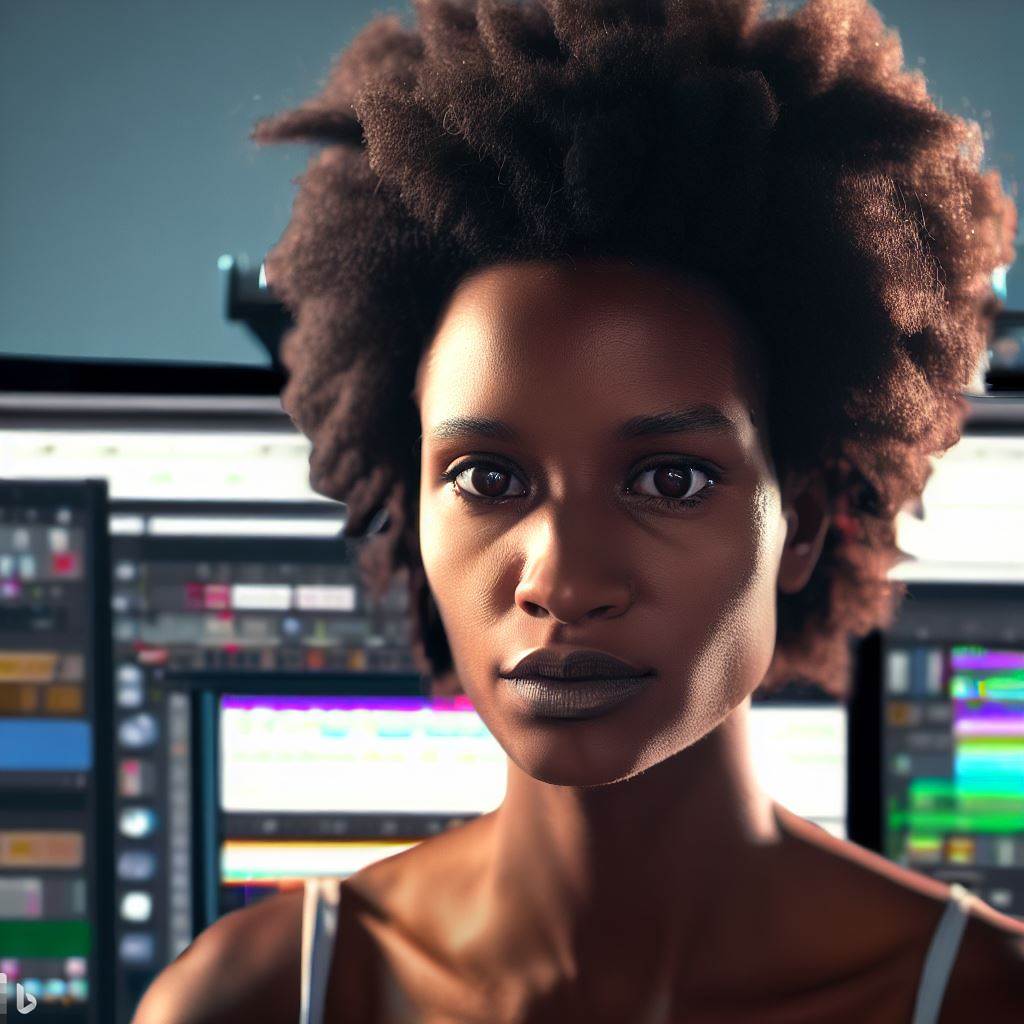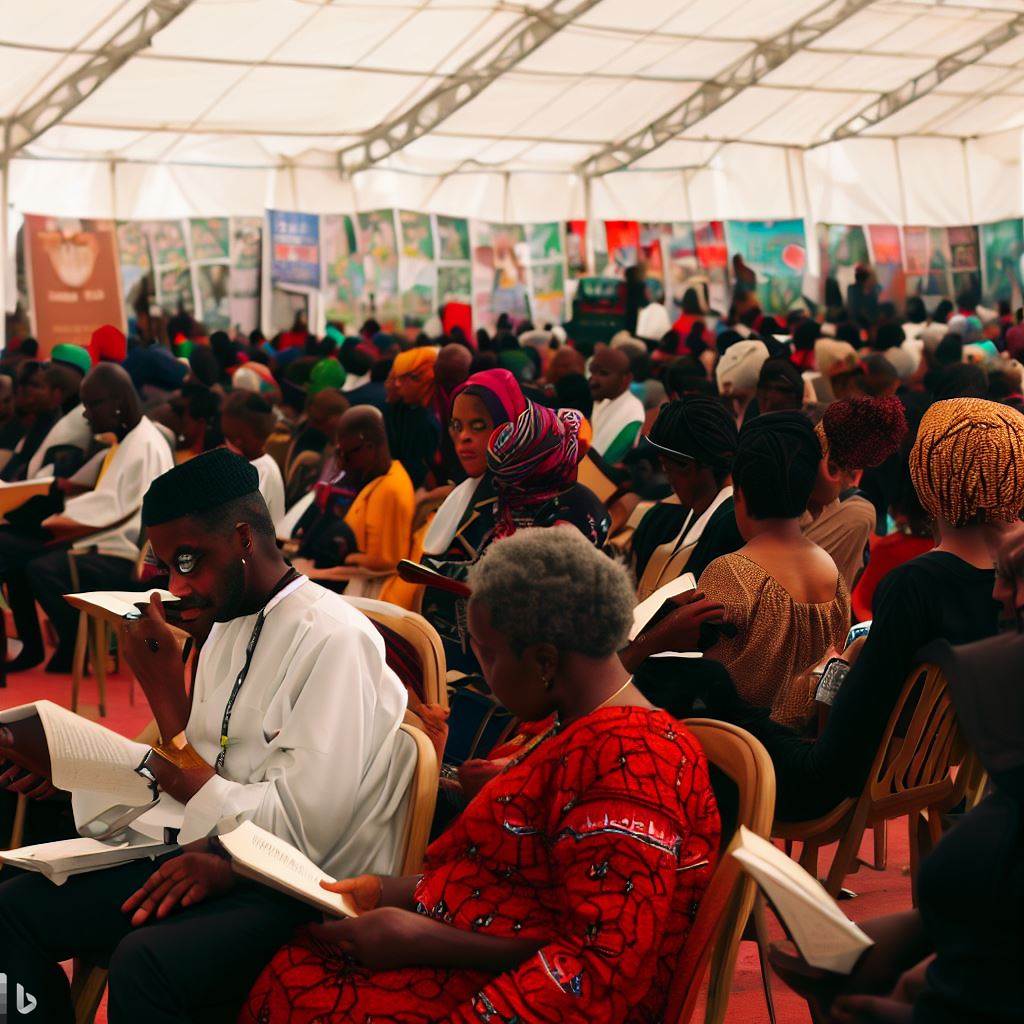Introduction
In this digital age, Nigeria has witnessed a significant rise in the use of digital media and editing.
The advent of technology and the Internet has revolutionized the way information is disseminated, consumed, and edited.
It is essential to examine the impact of digital media on editing in Nigeria to better understand the dynamics of this fast-changing field.
Digital media encompasses various platforms, including websites, social media, blogs, and online news portals.
These platforms have become the primary sources of information and communication for many Nigerians.
As a result, editing for digital media has become a specialized skill that requires proficiency in online writing, SEO optimization, and multimedia editing.
The importance of understanding the impact of digital media on editing cannot be overstated.
Firstly, digital media allows for instantaneous dissemination of information, requiring editors to be meticulous and skilled in fact-checking and accuracy.
Additionally, the emergence of social media has led to the proliferation of user-generated content, increasing the need for content curation and editing.
Furthermore, digital media has expanded the boundaries of content creation and editing in Nigeria.
Thanks to tools like video editing software and graphic design applications, editors can now enhance their content with visual elements and multimedia, making it more engaging and impactful.
Understanding these tools and their impact is vital in creating compelling and relevant content for the digital audience.
In the end, the impact of digital media on editing in Nigeria cannot be ignored. As technology continues to evolve, it is imperative for editors to keep pace with these advancements.
By understanding the impact of digital media on editing, Nigerian editors can effectively adapt to the changing landscape and continue to deliver high-quality, engaging content in this digital age.
Evolution of Editing in Nigeria
Traditional Methods of Editing in Nigeria
- In Nigeria, editing traditionally involved physical edits on paper manuscripts or printed materials.
- Editors would read through the text, mark corrections or suggestions, and communicate them to the authors.
- The editing process was time-consuming and required multiple rounds of revisions.
- Editors often worked closely with authors to ensure the content met the desired standards.
- Traditional editing in Nigeria relied heavily on manual proofreading for typos, grammar, and style.
- Handwritten editing marks and symbols were used to indicate changes or improvements needed in the text.
How Digital Media has Revolutionized the Editing Process
- The advent of digital media has transformed the editing landscape in Nigeria.
- Editing has become more efficient and accessible thanks to word processors, editing software, and online platforms.
- Digital media allows for real-time collaboration between editors and authors, regardless of geographical locations.
- Track changes and comment features in word processors enable editors to make suggestions and revisions easily.
- Digital editing tools offer spell checkers, grammar correction, and style suggestions, reducing manual proofreading.
- Editing can be done electronically, eliminating the need for physical printing and reducing paper waste.
Advantages and Disadvantages of Digital Editing Compared to Traditional Methods
Advantages
- Digital editing saves time by streamlining the editing process and enabling real-time collaboration.
- Online platforms allow editors to work with authors remotely, expanding opportunities and talent pool.
- Editing software enhances accuracy by flagging potential errors and offering language improvement suggestions.
- Electronic editing reduces paper waste, contributing to environmental sustainability.
- Digital media enables easy storage, retrieval, and organization of edited manuscripts.
Disadvantages
- Reliance on digital media requires access to electricity, internet connectivity, and technological devices.
- Digital editing may lack the personal touch and face-to-face interaction of traditional methods.
- Technical glitches or software issues can disrupt the editing process and cause delays.
- Learning to use digital editing tools and software effectively may require training and adaptation.
- Digital editing can sometimes lead to the oversight of errors that would have been caught during manual proofreading.
In fact, the evolution of editing in Nigeria has been significantly influenced by the advent of digital media.
Traditional editing methods involving physical edits have been replaced by more efficient and accessible digital editing tools.
While digital editing offers numerous advantages like time savings, remote collaboration, and easy organization, it also comes with its disadvantages such as reliance on technology and potential errors due to lack of personal touch.
However, overall, digital media has revolutionized the editing process in Nigeria, making it more streamlined, efficient, and adaptable to the digital age.
Read: The Influence of Nollywood on Film Editing in Nigeria
Availability and Accessibility of Editing Tools
The wide range of digital editing tools available in Nigeria
- Adobe Premiere Pro: A professional video editing software widely used by Nigerian editors.
- Final Cut Pro: Another popular editing tool among professionals, commonly used in Nigeria.
- Davinci Resolve: A high-quality video editing software gaining popularity in Nigeria.
- Avid Media Composer: A professional editing software used in the Nigerian film industry.
- LumaFusion: A mobile video editing app that has made editing accessible to a wider audience.
How the availability and accessibility of these tools have influenced editing practices
- Increased Efficiency: With advanced editing tools, Nigerian editors are able to work faster and more efficiently.
- Improved Quality: Digital editing tools allow for precise editing and enhance the overall quality of content.
- Creative Possibilities: The wide range of editing tools has expanded creative possibilities for Nigerian editors.
- Collaboration: Online accessibility of editing tools enables remote collaboration among editors and filmmakers.
- Professional Development: Access to advanced editing tools encourages Nigerian editors to improve their skills.
Challenges faced in accessing editing tools in certain regions of Nigeria
- Limited Internet Connectivity: Some regions in Nigeria lack stable internet connections, making online editing tools inaccessible.
- Cost: Professional editing software can be expensive, making it challenging for some editors to afford.
- Lack of Technical Support: In remote areas, the absence of technical support can hinder the use of editing tools.
- Power Outages: Frequent power outages in certain regions make it difficult for editors to utilize editing tools.
- Limited Training Opportunities: Access to proper training for using editing tools may be limited in certain regions.
In essence, Nigeria has a wide range of digital editing tools available, including software like Adobe Premiere Pro, Final Cut Pro, and Davinci Resolve.
These tools have positively influenced editing practices by improving efficiency, quality, creative possibilities, collaboration, and professional development.
However, challenges in accessing editing tools persist in certain regions due to limited internet connectivity, high costs, lack of technical support, power outages, and limited training opportunities.
Efforts should be made to address these challenges and ensure the widespread availability and accessibility of editing tools across Nigeria.
Read: Nigeria’s Top Editing Courses: A Comprehensive Review
Democratization of Editing
How digital media has democratized the editing process in Nigeria
Digital media has democratized the editing process in Nigeria by:
- Enabling easier access to editing software and tools for a wider range of people.
- Reducing the need for expensive equipment previously required for editing.
- Allowing individuals with limited resources to edit their own content.
- Bringing editing capabilities to remote areas without professional editing studios.
- Increasing the number of people involved in editing, fostering creativity and diversity.
How individuals and smaller production houses have benefited from this democratization
Individuals and smaller production houses have greatly benefited from this democratization:
- They can edit their own content without relying on external editing services.
- It reduces costs, making editing more affordable and accessible for independent creators.
- They have greater control over the editing process, resulting in content that aligns with their vision.
- It empowers underrepresented voices and allows for the expression of unique perspectives.
- Smaller production houses can compete with larger ones due to the availability of editing tools.
The implications of digital media on the distribution of edited content
However, the democratization of editing through digital media also raises concerns about the quality of edited content:
- Increased access to editing tools means more people can edit content, regardless of their expertise.
- Quality control becomes challenging when anyone can edit and publish content.
- It may lead to an inundation of poorly edited content, diminishing overall quality.
- Ensuring professional standards and techniques might be compromised due to lack of proper training.
- However, this potential impact on quality can be mitigated through education and training initiatives.
Overall, the democratization of the editing process in Nigeria through digital media has provided opportunities for individual creators and smaller production houses.
It has empowered diverse voices and allowed more people to express their creativity.
However, ensuring the quality of edited content remains a challenge that needs to be addressed through proper training and education programs.
Read: Education and Training for Aspiring Editors in Nigeria

Influence on Content Creation and Distribution
Impact of Digital Media on Content Creation in Nigeria
- Digital media has revolutionized content creation in Nigeria and opened new avenues for creativity.
- The accessibility of digital tools and platforms has empowered individuals to participate in content creation.
- Social media platforms, such as Instagram and YouTube, have become popular for sharing original content.
- Content creators can now reach a global audience, leading to increased visibility and opportunities.
- Digital media has democratized content creation, reducing barriers to entry and fostering diversity.
- Nigerian content creators have found success in various sectors, including fashion, comedy, and music.
- Online communities inspire collaboration, allowing creators to learn from and support each other.
- Content creators often use editing tools to enhance their work, making it visually appealing and engaging.
Overall, digital media has provided a platform for Nigerians to express themselves creatively and gain recognition.
The Crucial Role of Editing in Shaping Online Content
- Editing plays a vital role in shaping the quality and impact of online content.
- Effective editing ensures that content is concise, well-structured, and free from errors.
- By reviewing and refining their work, content creators can deliver a polished final product.
- Edit decisions impact the narrative flow, pacing, and overall storytelling of videos and written pieces.
- Through editing, content creators can engage their audience and convey their intended message effectively.
- Editing also involves selecting appropriate visuals, sound effects, and music to enhance the content.
- Content creators often collaborate with professional editors to elevate the quality of their work.
- Poor editing can undermine the credibility and impact of online content.
Therefore, it is crucial for content creators to invest time and effort into honing their editing skills.
Implications of Digital Media on the Distribution of Edited Content
- The advent of digital media has revolutionized the distribution of edited content in Nigeria.
- Content creators now have various platforms to share their edited work with a wider audience.
- Social media platforms, streaming services, and websites provide channels for content distribution.
- Digital media allows for instant sharing and global reach, eliminating geographical barriers.
- Content creators can analyze audience feedback and engagement to improve their future content.
- Distribution through digital media also enables content creators to monetize their work.
- Platforms like YouTube offer revenue-sharing programs, allowing creators to earn from their edited content.
- Online distribution also creates opportunities for collaborations and partnerships with brands and sponsors.
However, managing copyright and piracy issues remains a challenge in the digital content distribution landscape.
Despite challenges, digital media has significantly expanded the reach and impact of edited content in Nigeria.
Read: Nigeria’s Newsroom: The Crucial Role of Newspaper Editors
Changing Role of Editors
Evolution of the Role of Editors with the Rise of Digital Media
- Editors have transformed from traditional gatekeepers of information to adaptable facilitators in the digital era.
- Digital media has expanded the scope of editing, requiring editors to work across various multimedia platforms.
- Editors now play a crucial role in ensuring accuracy, credibility, and engaging content in the digital landscape.
- The rise of digital media has made editors more involved in the process of content creation, rather than mere proofreading.
New Responsibilities and Skills Required in the Digital Editing Landscape
- In addition to grammar and style, editors now need technical skills to navigate content management systems and digital publishing tools.
- Editors must have a deep understanding of SEO principles to optimize content for search engine rankings.
- They need to possess multimedia skills, such as video and audio editing, to handle the growing demand for diverse digital content.
- The digital editing landscape requires editors to be adaptable and constantly update their knowledge of emerging technologies.
Challenges Faced by Editors in Adapting to Digital Editing Practices
- The fast-paced nature of digital media demands editors to be efficient while maintaining quality standards.
- Editors face the challenge of balancing the need for speed with thorough fact-checking and verification.
- Digital media provides a platform for misinformation, making it essential for editors to combat fake news and promote accuracy.
- Editors must navigate copyright issues and ensure ethical content use in the digital realm.
- The constant influx of user-generated content poses difficulties in filtering and curating information effectively.
Basically, the impact of digital media on editing in Nigeria has reshaped the role of editors, bringing forth new responsibilities and challenges.
Editors now serve as facilitators, actively involved in content creation and ensuring accuracy and engagement.
They require technical skills, multimedia proficiency, and a keen understanding of SEO principles.
However, editors also face challenges in maintaining quality amid the fast-paced nature of digital media and combating misinformation.
Their ability to adapt and embrace emerging technologies will determine their success in the evolving digital editing landscape.
Discover More: Understanding the Role of a Make-up Artist in Nigeria’s Fashion
Impact on Traditional Media
The rise of digital media has had a significant impact on traditional media outlets in Nigeria, transforming the landscape and the role of editors within these organizations.
Analyzing the Impact
Digital media has revolutionized the way news and information are consumed, leading to the decline of traditional media outlets in Nigeria.
Print newspapers and magazines have seen a sharp decrease in readership and circulation due to the convenience and accessibility of digital platforms.
As more Nigerians turn to digital media for their news, traditional media outlets have had to adapt or risk becoming obsolete.
Many newspapers and magazines now have online editions and mobile apps to reach a broader audience. This shift has required editors to become proficient in digital content creation and distribution.
The Changing Role of Editors
The emergence of digital media has also brought about a changing role for editors in traditional media organizations.
Editors no longer solely focus on print articles but also manage online content, social media presence, and multimedia elements.
Editors now have to possess a diverse skill set that includes digital editing, video editing, and effective use of social media platforms.
They must also understand search engine optimization (SEO) and analytics to ensure their content reaches the intended audience and drives traffic to their websites.
Opportunities and Threats
Digital media presents both opportunities and threats to traditional editing practices in Nigeria. On one hand, digital platforms have expanded the reach and potential audience of traditional media outlets.
Editors can now leverage social media and online platforms to share content quickly and engage with readers in real-time.
However, digital media has also introduced new challenges. The speed at which news spreads online can lead to misinformation, inaccuracies, and fake news.
Editors must carefully fact-check and verify sources to maintain credibility and ensure the accuracy of their reports.
Additionally, the ease of publishing content online means that anyone can become a content creator, bypassing traditional media outlets altogether.
This poses a threat to the authority and influence of editors, as individuals can now directly publish their perspectives and opinions without editorial oversight.
Furthermore, digital media has given rise to new forms of citizen journalism, where ordinary individuals can witness and report on events using their smartphones.
Editors must navigate through user-generated content and determine its relevance and credibility.
All in all, the impact of digital media on editing in Nigeria’s traditional media outlets cannot be overlooked.
This shift has caused significant changes in the role of editors, requiring them to adapt to digital platforms and new forms of content creation.
While there are opportunities for broader reach and engagement, editors also face threats from misinformation, the rise of citizen journalism, and the devaluation of editorial authority.
Conclusion
This blog post has highlighted the key points regarding the impact of digital media on editing in Nigeria.
It is crucial to understand and appreciate the significance of digital media’s influence on the editing process in Nigeria.
As we look to the future, it is clear that editing in Nigeria will continue to evolve and adapt to the changing landscape of digital media.
Key Points Discussed
- Digital Tools: Editing has evolved with software, enhancing efficiency and creativity.
- Global Reach: Digital media facilitates broader audience engagement, shaping content for various platforms.
Importance of Understanding Digital Media’s Impact
- Enhanced Skills: Editors must grasp digital tools to stay relevant and meet modern demands.
- Quality Control: Digital media proficiency ensures accurate, appealing content across online platforms.
The Future of Editing in Nigeria
As digital media continues to reshape communication, editing’s role will become even more pivotal in Nigeria’s dynamic landscape.




